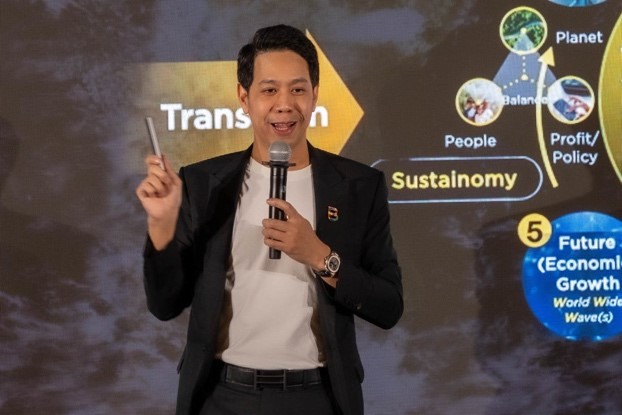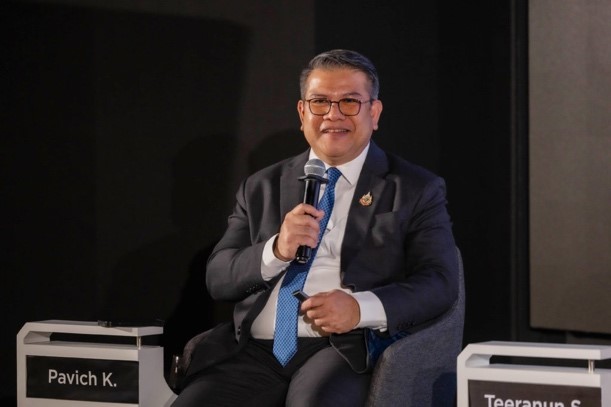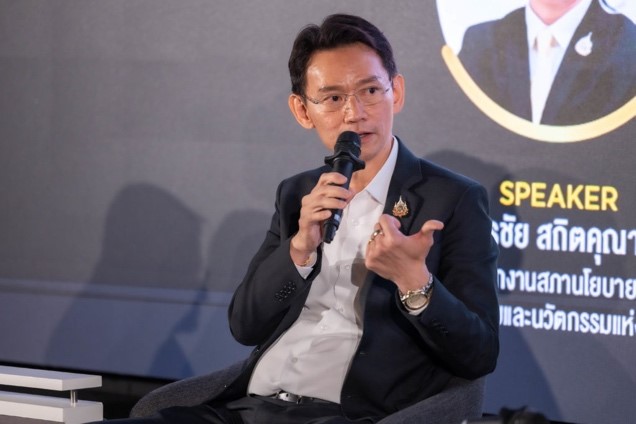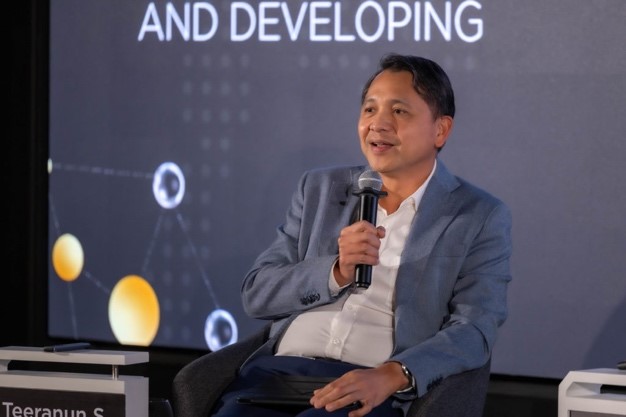On 28 January 2025, NXPO President Dr. Surachai Sathitkunarat joined a panel discussion on “New Policy Landscape: Regulating, Facilitating, and Developing” at FUTURE-READY 2025: Ready for the Unknown Horizon, hosted by BRANDi and Companies at BRANDi HopeQuarter.

Dr. Surachai highlighted the mission of the Ministry of Higher Education, Science, Research, and Innovation (MHESI), formed through the merger of the former Ministry of Science and Technology, the Office of the Higher Education Commission (OHEC), and public research funding agencies. This integration allows MHESI to oversee higher education alongside science, research, and innovation while managing national research funding. Under MHESI, funding agencies provide targeted grants based on their respective missions. For example, the Program Management Unit for Competitiveness (PMUC) offers funding tailored to industry needs, strengthening national research and development.


In higher education, MHESI has introduced skill mapping, enabling students to assess their competencies for desired careers or job positions upon graduation. This process identifies gaps in both soft and hard skills, supporting effective human resource planning and ensuring students are better prepared for the workforce. Additionally, NXPO supports the Higher Education Sandbox, an initiative that enables universities to pilot innovative educational programs free from regulatory restrictions. One example is a co-creation course, developed in collaboration with the private sector, where students gain hands-on experience through internships. Students may enter the workforce before completing a traditional four-year degree, with their earned credits stored in a credit bank for future degree completion. These innovative workforce development programs are crucial for emerging industries such as semiconductors, advanced electronics, artificial intelligence, and electric vehicles.
Currently, NXPO is driving transformation in five key areas:
- Economic Development – Supporting innovation-driven enterprises (IDEs), with a goal of establishing 1,000 enterprises, each generating an average revenue of THB 1 billion.
- Grassroots Economy – Reducing social inequality and fostering socioeconomic mobility.
- Environmental Sustainability – Enabling the reduction of 10 million tons of CO₂ equivalent, including initiatives like the Net Zero Campus campaign, where universities nationwide commit to carbon neutrality.
- Workforce Development – Increasing the proportion of skilled labor through upskilling, reskilling, and newskilling programs.
- System Reform – Enhancing system efficiency by integrating and linking data and updating laws and regulations.












